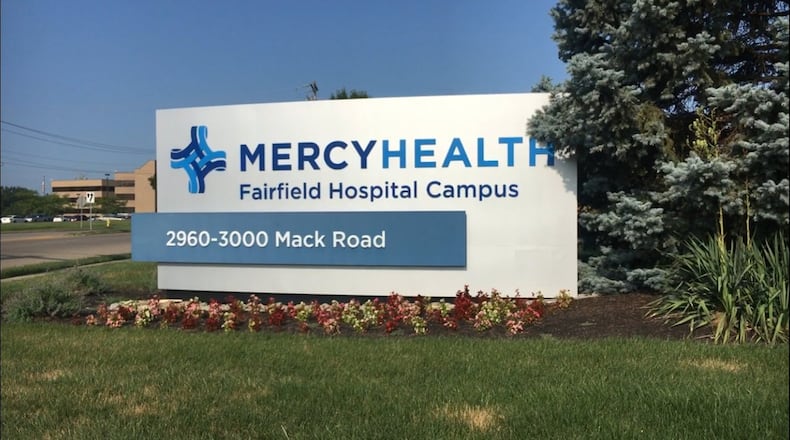The program is a partnership between the Butler County and Hamilton County public health districts, the city of Fairfield, the Butler County Mental Health and Addiction Recovery Services Board, and Mercy Health-Fairfield Hospital.
Butler County Health Commissioner Jenny Bailer said the program’s slow start was intentional, as officials wanted to work out issues, but said the lion’s share of those visits were repeat visitors, which is “vital” to get people into treatment.
FAIRFIELD NEWS: Fairfield named one of country’s best suburbs by new survey
“The actual physical exchange of the syringe is a carrot on a stick to get people in and to get those repeated touches,” she said.
A dirty syringe has transformed from a public danger for the community — as many are improperly discarded at public places, such as parks — into a commodity, Bailer said. Those who visit the program’s van parked every Tuesday from 2 to 5 p.m. at Mercy Health-Fairfield Hospital on Mack Road and have access to a clean needle.
But they also have access tests for things like HIV, Hepatitis C and pregnancy, and they can also be vaccinated for Hepatitis A.
“The more contact you have with a person, the quicker they’re going to get into treatment,” said Tiffany Lombardo, Butler County MHARS Board associate executive director of Alcohol and Drug Addiction Services.
She said these are “positive contacts,” in which they can receive support and are told of treatment options.
“We want to see people in treatment, we want to stop overdose deaths, we want to see healthy people, and we want to see people in recovery,” Lombardo said. “So the more we can help promote that the better.”
EDUCATION NEWS: Butler County district opens 1 of Ohio’s 2 academies for cybersecurity training
Mercy Health-Fairfield joined the program because the hospital’s mission includes keeping the community healthy and helping the under-served population, said Shane Knisley, the Fairfield hospital’s chief operating officer.
“We know there’s an opioid problem and we know people are overdosing,” he said. “Addiction is a disease they need to be treated for, and until they can get into that treatment, there are bad outcomes that could happen.”
Mercy Health’s first endeavor into a bloodborne pathogen prevention program was at its Clermont County campus, and Knisley said its success was enough evidence to know the hospital wanted to offer it other places.
“There wasn’t anything serving the southern Butler County, northern Hamilton County area, so we felt like we were a good location for it,” he said.
And there was no hesitation, Knisley said.
“Anytime you go out on the limb on something that’s not the norm, people’s going to be, they have to be educated,” he said.
Substance-use disorder, especially the use of intravenously injected opiates, is an epidemic in the county, said Bailer.
Since 2002, the incidence of HIV has increased 800 percent and Hepatitis C cases have increased 300 percent in Butler County, according to a Butler County General Health District report.
Bailer said the cost of running the disease prevention program is between $50,000 and $60,000 a year, which is funded by the MHARS Board and Ohio funds designated for the opiate response.
The lifetime treatment cost for HIV is estimated at nearly $380,000, according to the Centers for Disease Control and Prevention. Bailer said if this program prevents a single HIV case, it “will have more than paid for itself through prevention.”
“The goal of harm reduction is to keep people healthy and disease-free so they can get into a drug treatment program and be successful there,” Bailer said.
HOW TO GO
Fairfield’s Bloodborne Infectious Disease Prevention Program is held from 2 to 5 p.m. every Tuesday in the parking lot at Mercy Health-Fairfield Hospital, 3000 Mack Road.
About the Author

